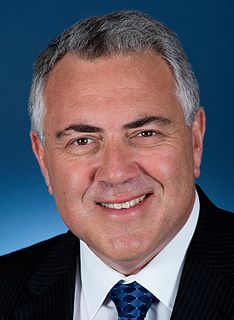A Quote by Timothy Geithner
Monetary policy itself cannot sensibly be directed at reducing imbalances.
Related Quotes
If European monetary policy is run according to German interests, huge structural imbalances will accumulate. The Germans will then either have to pay to correct those imbalances or agree that the euro should not be run primarily according to German interests. If they are unwilling to do either of those things, the euro can't survive.
The major economic policy challenges facing the nation today - pick your favorites among the usual suspects of low public and household savings, concerns about educational quality and achievement, high and rising income inequality, the large imbalances between our social insurance commitments and resources - are not about monetary policy.
Inflation is certainly low and stable and, measured in unemployment and labour-market slack, the economy has made a lot of progress. The pace of growth is disappointingly slow, mostly because productivity growth has been very slow, which is not really something amenable to monetary policy. It comes from changes in technology, changes in worker skills and a variety of other things, but not monetary policy, in particular.






























